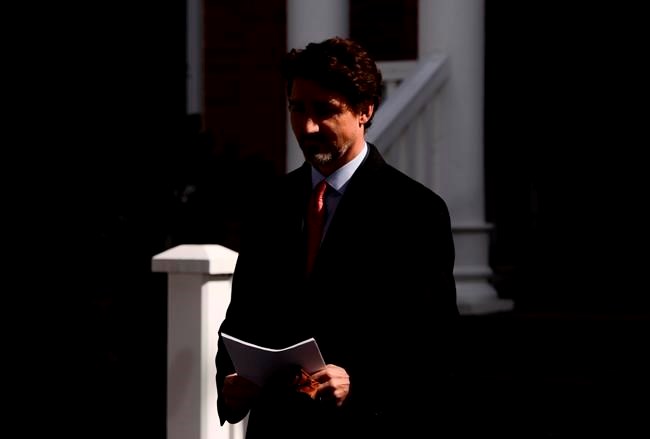OTTAWA — The federal government will start enforcing 14-day quarantines on travellers returning to Canada to try to limit the spread of COVID-19.
Deputy Prime Minister Chrystia Freeland says "mandatory isolation" is needed to flatten the curve of the growth of the novel coronavirus in Canada.
The formal quarantines, which take effect at midnight tonight, come with the potential for fines or even arrests for people violating them.
"Canadians are great and people have been making real personal sacrifices," Freeland told a news conference. "At the same time, all of us are going to be and feel safer with mandatory quarantines for anyone entering Canada."
International travel — initially from China, then Iran and South Korea, then Europe and now the United States — has continued to be a significant vector for the spread of the novel coronavirus.
And Canada's border with the U.S., while closed to non-essential travel, is still open to trade and commerce, as well as travel for cross-border workers or students with visas.
Freeland says those essential workers who are permitted to cross the Canada-U.S. border will not be subject to the mandatory quarantine.
"We need to be really thoughtful about what we do there," she said, citing the vital flow of goods and medical equipment and supplies that enter the country by truck from the U.S.
"We need to be thoughtful about how the people who provide those essential services, including cross-border trade, are treated."
- RELATED: The latest developments on COVID-19 in Canada
- RELATED: Unemployed Canadians anxiously awaiting federal COVID-19 help
The World Health Organization has warned that the U.S. is becoming the new epicentre of the global pandemic as the spread of COVID-19 continues to accelerate, particularly in and around New York, which is urging recent visitors to self-isolate at home.
Ontario health officials reported Tuesday that nearly 20 per cent of its active cases were the result of travel in the U.S.
Asked about the possibility of more stringent screening measures at the border, Freeland called the situation "fluid and evolving" and said federal officials are monitoring the situation around the world "by the hour."
"We are always reviewing additional measures, including measures at the border."
This report by The Canadian Press was first published March 25, 2020.
The Canadian Press



